Purpose of Shared Community Values Statement:
The Dewberry School of Music Shared Community Values Statement is the result of a collaborative project to identify and express the aspirational, shared community values and expectations for how community members will engage with each other. This statement was codeveloped with the Dewberry School of Music students, faculty, and administrators together.
The statement outlines how we want to be in relationship with each other. It is a living document and is intended to be a tool or resource for community members to create a more inclusive and respectful learning community. It is not intended to be a basis for disciplinary action. By voluntarily adopting and agreeing to this statement, members of our community express their support for the principles articulated in this document and commit to treating each other in the ways delineated in this document.
These shared values can be adopted and applied by everyone in the community, and do not spotlight any one constituency. They can also be adopted and applied in any context, from the most formalized to the most informal professional contexts within the School of Music.
The values expressed here are consistent with and supportive of the Dewberry School of Music and George Mason University’s strong commitment to freedom of expression, as articulated in the university’s “Free Speech at George Mason” statement.
Dewberry School of Music Shared Community Values
(Adopted by Dewberry School of Music Voting Faculty on August 17, 2022)
I am committed to being respectful
I am committed to respecting the personhood of all community members across sociocultural identities, social status, and affiliation in the Dewberry School of Music, CVPA, and at George Mason. This includes using community members’ chosen names and pronouns. I am committed to respecting others’ artistic professionalism with open and timely communication and input on decision-making whenever appropriate. This atmosphere of respect applies both in-person and across digital media platforms.
I am committed to being an active participant
I am committed to participating as actively as I can and will communicate when something is taking away my attention. I understand that active participation may look different for each community member and I trust that each member is showing up to the best of their capacity.
I am committed to using “I” statements and hearing “I” statements
I am committed to speaking from my own experience and feelings by using “I” statements rather than generalizing. (I think, I feel, I believe.) I am committed to practicing hearing the experiences of historically and institutionally marginalized community members individually. And seeing each community member as individuals who represent themselves and not the whole socio-cultural groups to which they belong.
I am committed to practicing empathy
I am committed to appreciating how others may be feeling and thinking. Practicing empathy also means considering how internal and external context, such as societal issues, affects how community members may show up.
I am committed to acknowledging intent, and addressing impact
Not all harm that is experienced comes from an intentionally harmful place, often bias-based harm is rooted in stereotypes and prejudice formed through socialization. This doesn’t mean that the harm feels any less hurtful. I am committed to acknowledging the harm intentional or unintentional, tending to the hurt person, and working to prevent future harm. I recognize that there is both burden and value in the contribution of community members with historically marginalized identities.
I am committed to acknowledging the liveliness of language
Language and the way we engage with language are contextual and constantly evolving. Our community includes individuals with various cultural identities, ethnic and racial identities, religions, sexual orientation, gender identity, gender expression, and intersecting backgrounds. Having sensitivity to language is essential in cultivating the conditions of inclusion for all community members. As an example, “guys” is often used in addressing groups of people however the phrase is not gender-neutral and may feel exclusionary to some non-binary members in our community (recommended replacements, folks, y’all, everyone).
I am committed to being okay with agreeing and disagreeing respectfully and challenging my assumptions
I am committed to the practice of separating the point of view or statement with which I disagree from the person when actively engaging in moments of disagreement. I am committed to the practice of calling in (suspending judgment without shame) instead of calling out (shaming). I will lead with curiosity, listen to understand, and ask for clarity. I recognize that meeting people where they are, requires each of us to do the internal work to challenge our assumptions and build self-awareness of our socialization that is connected to those assumptions.
I am committed to seeking harmony
While I will do my best to show up for and with other, I understand that there may be moments of disharmony. I am committed to self-reflection and concern for others and being an instrument of positive change. When moments of discord, dissent, or disagreement happen, I am committed to doing the individual internal work for the co-creation of peace.
Dewberry School of Music Spotlights Black Artists
“I thought this was important for us to do, and I’m very proud of what we’ve been able accomplish in order to curate and present the Black Artists Series,” commented Linda Apple Monson, Director of the Dewberry School of Music. She added, “I must note that this is possible for us because of the terrific relationships that our Dewberry School of Music faculty enjoy with terrific colleagues in the field.”

In 2020, the Reva and Sid Dewberry Family School of Music lead the charge by utilizing its collective efforts and creative energy to shed light on the talents of those who have been historically underrepresented. As part of this crucial endeavor, the School established a monthly educational series that includes masterclasses and roundtable discussions highlighting Black musicians and their contributions to the music field. The Black Artists Series launched in the fall of 2020, upholding George Mason University’s mission to be an “inclusive academic community committed to creating a more just, free, and prosperous world.”
The series—which was organized by Linda Apple Monson and members of the Dewberry School of Music faculty—featured 13 extraordinary guest artists in various formats during the semester. From composers and conductors to singers and instrumentalists, a broad array of musical disciplines at the Dewberry School of Music were spotlighted through this Black Artist Series.
Artists featured in this series:
- Ysaÿe Barnwell, Choral
- Kevin Day, composer
- Alfred Watkins, conductor
- Isaachah Savage, dramatic tenor
- Shawn Okpebholo, composer
- Wycliffe Gordon, trombonist
- Louise Toppin, soprano
- Alana Wiesing, percussion
- Rita Porfiris, chamber music/composition
- Aundi Marie Moore, soprano
- Michael Nickens, tuba
- Marcellus Brown, conductor
